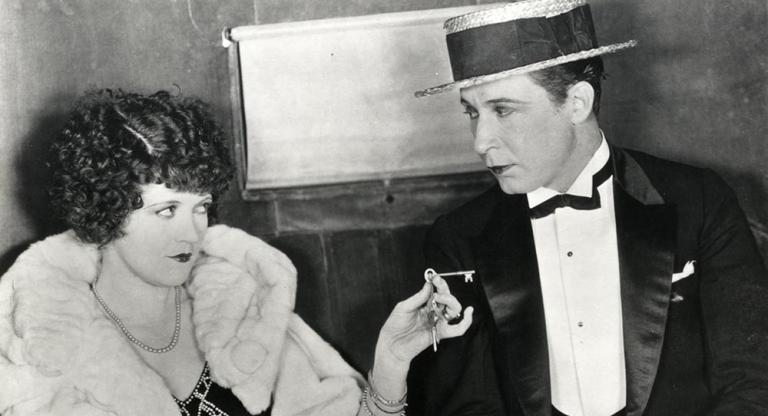Three words from an advertisement are pasted on Millie’s (Shelley Duvall) bulletin in 3 Women: “Clean Is Sexy.” 3 Women never tells us exactly why it is sexy to be clean, but it must have something to do with the white uniforms or clocks at the geriatric spa where Millie and Pinky (Sissy Spacek) are employed. The slogan is a curious proposition for Robert Altman’s 1977 feature, which erodes clean delineations between the identities of Millie, Pinky, and Willie (Janice Rule) as the film progresses.
A recent transplant to the California desert, Pinky plays the role of the fool by way of social faux pas at Millie’s apartment complex, the local saloon bar, and spa. Yet it was Duvall whom Altman believed “allowed the fool in her to show itself…what I call the ‘pink stuff.’” Pinky is almost ontologically pinky, or foolish, down to her name. She blows bubbles into her drink when given the chance and spins around in a wheelchair when she starts her job at the spa. “She’s just a little kid,” Millie says in defense of her, except that’s not really true nor the issue at hand. A kid probably can’t chug beer or shoot at full range in lipstick.
3 Women’s women have a lot of trouble staying clean. In one scene, Pinky spills tomato sauce all over her dress in her attempt to prepare a dish for a dinner party. The spill angers Millie not only because it thwarts her dinner plans, but also because it taps into her dislike for the “dirty,” which she expresses early in the film by decrying her game of Scrabble with a date: “All he wanted to do was make up dirty words. We weren’t gonna play that way.” Pinky’s spoiled frock also anticipates Millie’s bloodied attire after her failed attempt to deliver Willie’s baby late in the film. In Desert Springs, as we come to understand it, Willie’s miscarriage is tragic not only for the loss of her child but because it leaves Millie so horrifically unclean. Unclean because it marks her failure to satisfy her job as a caretaker. Unclean because her dress is ruined. Unclean because it leaves her hands dirty with the program of Manifest Destiny, which is evoked through an outburst about “savages” by Willie’s husband, Edgar (Robert Fortier). A clean cut, even down to Altman’s use of superimposition, is not the film’s aspiration.
If you paint a mural at the bottom of a pool—as Willie is shown doing throughout 3 Women—you can expect it to remain in motion. The murals, in other words, are moving images not merely through their cinematic context but because of their lamination by water. Dreams and water always move. Names, too: a nickname can always be replaced by its source. To be without motion would be too clean. For that reason, Altman forwent a script for 3 Women and prioritized the flux of dream logic. 3 Women culminates with a scene of homestead fantasy, haunting in its still and quiet quality. The shifting water on which the film opens is an allure to which we wish to, and cannot, return.
3 Women screens at the 4 Star on Sunday afternoon, July 14, for Shelley Duvall Day.
Previously:
3 Women screens this afternoon, March 2, at the Museum of the Moving Image as part of the series “Snubbed 2: The Performances.”

![Diane Arbus, “Frankenstein’s Daughter” [close up with shoulders] 1958 Diane Arbus, “Frankenstein’s Daughter” [close up with shoulders] 1958](/sites/default/files/styles/teaser_image/public/2024-07/FG%2001_Fraenkenstein_Arbus_%E2%80%9CFrankenstein%27s%20Daughter%E2%80%9D%20%5Bclose%20up%20with%20shoulders%5D%201958.jpg?itok=QfWh5tOu)


